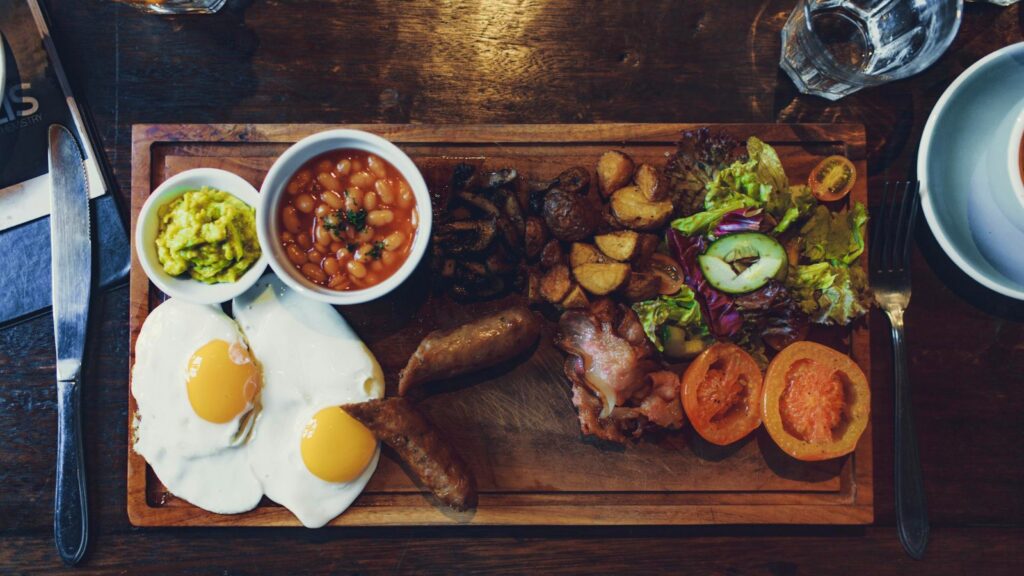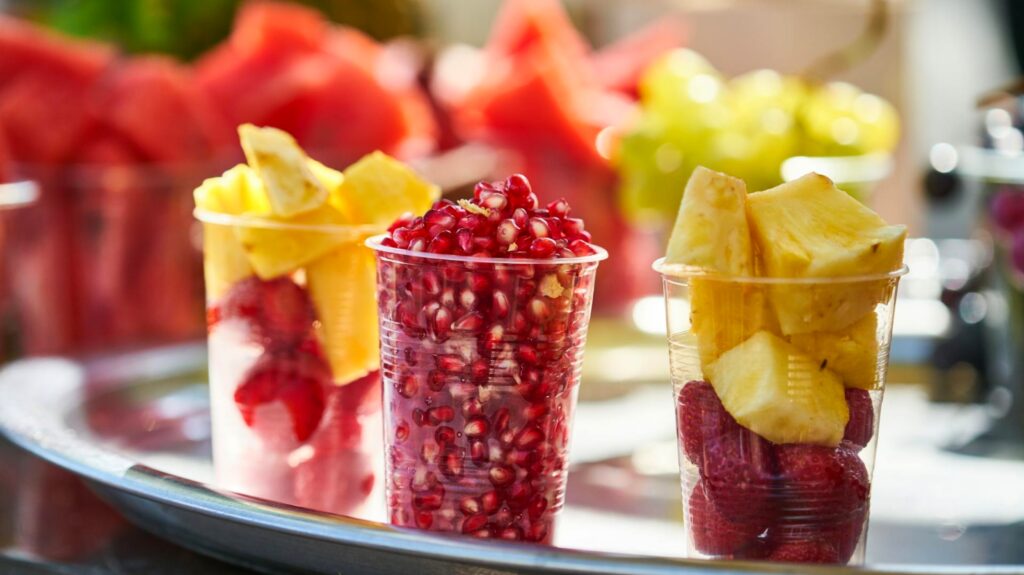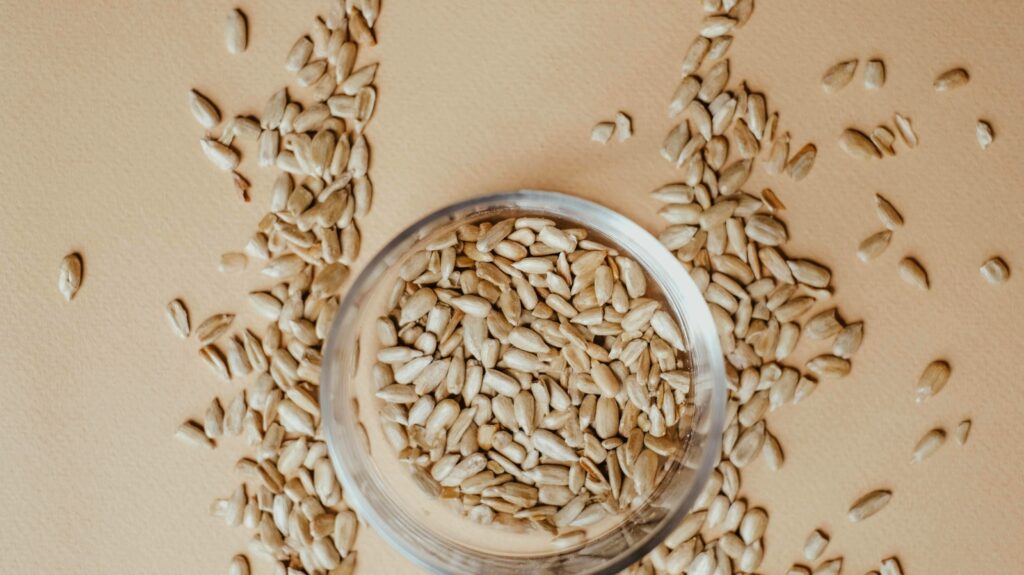Types Of Nutrition
To live a healthy peaceful life, it is crucial to adopt a healthy lifestyle as
well as a nutritious diet. a healthy diet includes the right proportion of
fruits, vegetables, meat, seeds and nuts which give all the essential
nutrients which our body needs. We are going to discuss all those types
of nutrients which play a vital role in a healthy body. This article will
inculcate all those aspects of nutrition which are important for you
people.
Nutrition is an umbrella term.
It is a science which studies the relationship between health and diet in
detail. During healthy diet, we consume healthy food and a good number
of nutrients.it is very important to have the right proportion of
nutrients in your meal plans like vegetables, fruits, seeds, meat, and
nuts in your diet. Now coming to the exact point, this article will let you
know two major types of nutrition which have so many other sub sided
types. Let’s get started;
Macronutrients;
These nutrients fulfill the body’s needs in an ample amount to function
and remain healthier. macronutrients are classified into different other
groups; Proteins Carbohydrates, Fats, and Water. Let’s discuss them in
detail and know the pros and cons of macronutrients.
Proteins

Proteins are very basic nutrients which are formed from amino acids.
Proteins repair, build, and maintain body tissues and muscles. Proteins is
also helpful to curb hunger, boost metabolism, build lean muscle,
reduce muscle loss, and improve bone health.
Carbohydrates

Carbs provide energy to our body in the shape of simple sugar or
glucose. The body uses glucose to store it in the liver for later use or in the
muscles. carbohydrates also help to regulate blood, and mood, relieve
muscle fatigue, and gain muscles. They are useful to support brin and
bodily functions.
Fats

this nutrient supports energy source. Fats are helpful to absorb many
vitamins. They protect body organs and keep cholesterol under control
and maintain to high blood pressure.
Water

Water plays myriad roles in our body. as we can say that it aids in
absorption of vitamins and minerals. it regulates body temperature and
produces fluids and removes waste material.
Micronutrients
while other nutrients include vitamins and minerals. These nutrients
aid to the body in development and growth.
Vitamins

Vitamins are not produced by our body, but it takes vitamins in small
quantities from external sources to stay healthy and to work properly.
Vitamins are really helpful to promote healthy aging, to support our
immune system, to keep bones strong, maintaining muscle strength and
to boost cardiovascular health.
Retinol Vitamin A: black-eyed peas, cantaloupe, cheese, sweet
potatoes, fish tomatoes, yogurt, milk.
Vitamin B1 (Thiamin):
Bananas, lentils, beans, oranges, nuts, raisins, bread, green peas, fish,
cereals.
Vitamin B2 (Riboflavin): milk, chicken breast, tofu, milk, plain yogurt,
almonds, eggs, salmon, mushrooms.
Vitamin B3 (Niacin): legumes, whole wheat, tuna, red meat, peanuts,
mushrooms, salmon, pumpkin seeds, brown rice, bananas, avocado,
mangoes.
Watch Maya
Vitamin B4 (Adenine): ginger, cloves, capsicum, hawthorn, whole
bread, jojoba, apples, raw honey, strawberries, whole grains.
Vitamin B5 (pantothenic acid): oats, guavas, nuts, brown rice,
avocados, seeds, low-fat yogurt, salmon, whole milk, and grapefruit.
Vitamin B6 (pyridoxine): spinach, dark leafy greens, chickpeas, lady
finger, cantaloupe, fish, papayas, bananas, oranges, cauliflower.
Vitamin B7 (Biotin): raspberries, peas, pork, bananas, seeds and nuts,
mushrooms, beans, cauliflower, lentils, egg yolks and broccoli.
Vitamin B8 (inositol): wheat bran, peas, whole grains, raisins, oatmeal,
brown rice, nuts, bananas, dried prunes, cantaloup, oranges, and barley.
Vitamin B9 (Folate): sweet corn, eggs, beans, dark leafy green
vegetables, lemons, mangoes, lettuce, whole grains, seafood, oranges,
grapefruit and peanuts.
Vitamin B10/vitamin Bx (Para Amino Benzoic acid-PABA): green leafy
vegetables, nuts, whole grains, brewer’s yeast, fish, mushrooms,
molasses, rice, yogurt, potatoes, eggs, bran, wheat germ and cereals.
Vitamin B11 (salicylic acid): cheese, egg yolks, green leafy vegetables,
whole wheat bread, meat, and poultry.
Vitamin B12 (cobalamin): fortified breakfast cereals, cheese, low-fat
dairy, meat, eggs, tofu, seafood and soymilk.
Vitamin C (ascorbic acid): tomatoes, broccoli, strawberries, cabbage,
grapefruit, sprouts, kiwi, oranges, cauliflower, lemon, bell paper and
white potatoes.
Vitamin D (calciferol): sardines, yogurt, whole eggs, cereals, oily fish,
oatmeal, mushrooms, salmon, and fortified milk.
Vitamin E (Tocopherol): red bell paper, wheat germ oil, almonds,
soybean oil, spinach, pumpkin, peanuts, beet greens, and collard greens.
Vitamin K1 and vitamin K2: vegetable oil, spinach, cereal grains,
cabbage, milk, curds, eggs, cheese, natto, and broccoli.
Minerals

minerals are basic nutrients to perform different functions in our body.
They build strong bones, teeth, and muscles. Minerals are helpful in
keeping our brains healthy and active. They are also good in the
production of enzymes and hormones.
Mineral sources
Calcium: chickpeas, eggs, green leafy vegetables, dairy portion,
soybeans, tofu, plant milk.
Potassium: nuts, kidney beans, beet greens, potatoes, avocado, fish,
kiwifruit.
Magnesium: poultry forms, oats, seeds and nuts, papaya, legumes,
whole grains, dried figs, cereals.
Fiber

Fiber is useful in digestive system and it controls our blood sugar level
and high cholesterol.it gives relief from constipation and malnutrition.
fiber gives us a feeling of fullness and makes to regulate our bowel
movements.
Stay Tuned
Stay Blessed
Stay Happier

